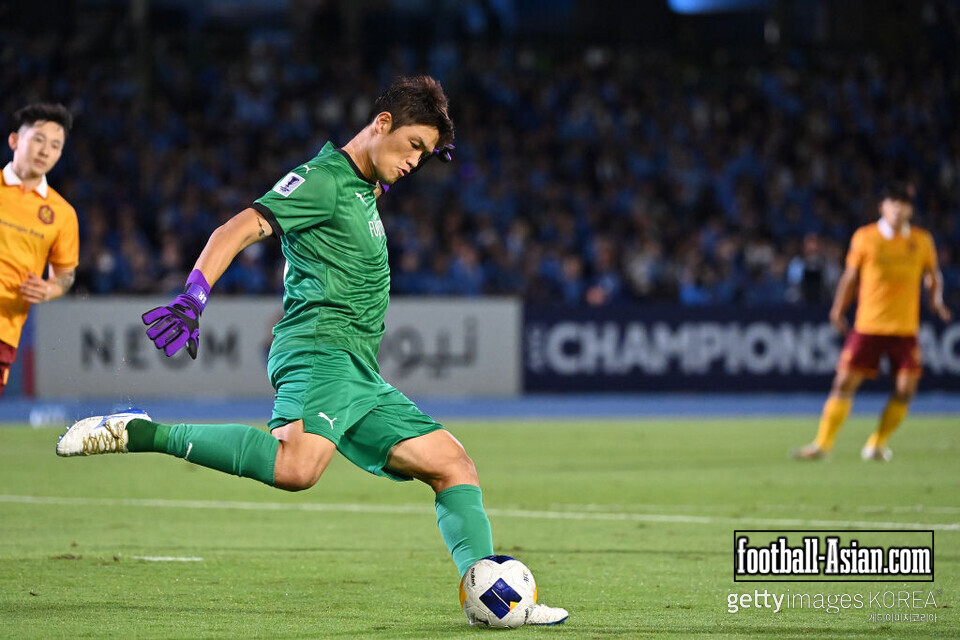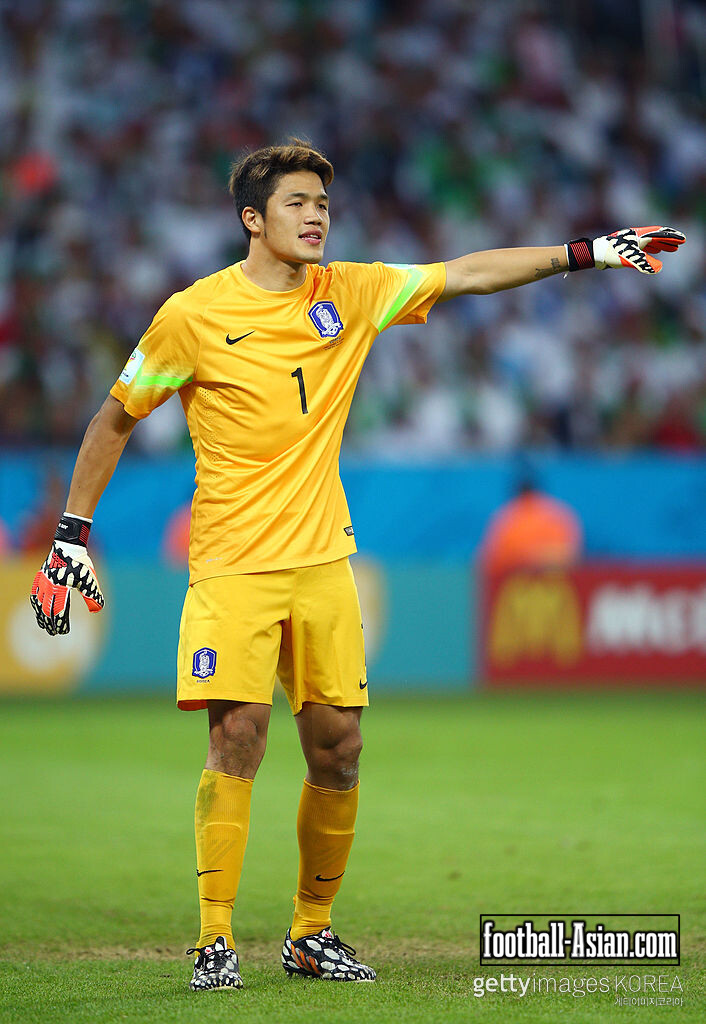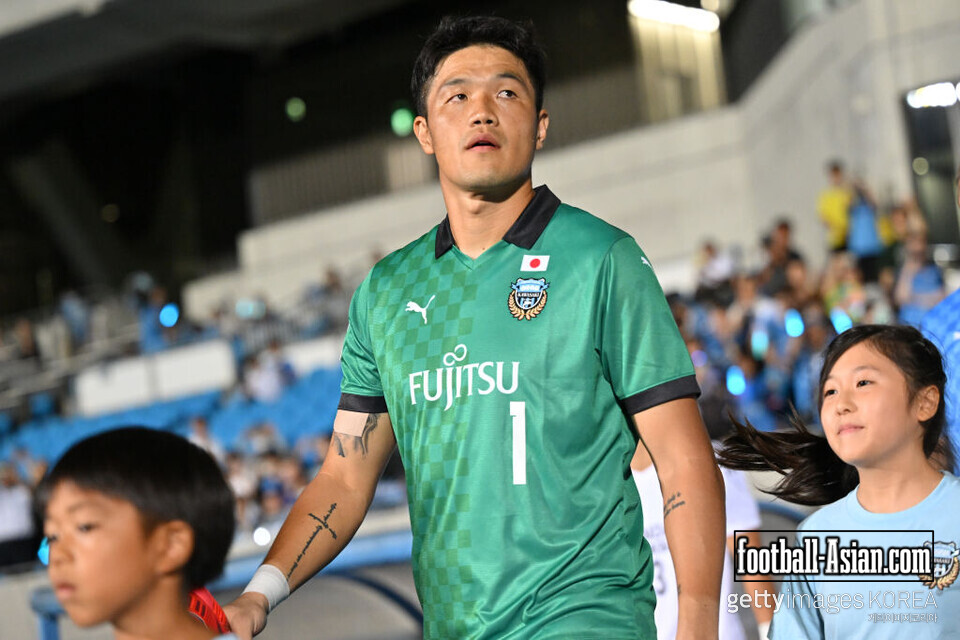
When Kawasaki Frontale confirmed this week that they would not be renewing the contract of Jung Sung-ryong, it marked more than the departure of a veteran goalkeeper. It closed a chapter that quietly underpinned one of the most dominant eras in modern Japanese football.
For 10 seasons, Jung was the calm beneath the waves — a presence so steady, so unobtrusive, that the revolution happening around him often overshadowed the man anchoring it from the back.
Now, after a decade, the 39-year-old is leaving the club he joined in 2016, having played 363 games, lifted multiple domestic trophies, and twice earned a place in the J1 League Best XI. His exit feels like the gentle closing of a door that has been open for far longer, and far more consistently, than most football stories allow.

A Move That Changed Two Careers — and a Club
When Jung arrived from Suwon Samsung Bluewings in January 2016, he was already a proven international:
• two World Cups (2010, 2014),
• 67 appearances for South Korea,
• several deep ACL runs in Korea.
But his move to Kawasaki did not guarantee longevity. At 31, goalkeepers often face the crossroads between late blossoming and gradual decline.
Jung chose neither — he simply reinvented himself.
Under managerial icons like Toru Oniki, Kawasaki’s football evolved into one of Asia’s most fluid positional systems. Jung became its foundational piece. His distribution — once considered functional — sharpened into a genuine weapon. His positioning, long admired in Korea, became a signature trait in Japan. And above all, his ability to erase danger before it became visible made him the invisible scaffolding of a dynasty.
Between 2017 and 2021, Kawasaki won:
-
4× J1 League titles
-
1× Emperor’s Cup
-
1× J.League Cup
-
2× Japanese Super Cups
Jung was there for every phase of that curve, from the near-misses to the swaggering peak when Frontale became a machine.
In 2018 and 2020, he was voted into the Best XI, recognition not just of shot-stopping but of his influence on build-up patterns and defensive organisation — core elements of Kawasaki’s dominance.

A Season Too Quiet, and an Ending That Felt Inevitable
2024–25, however, introduced a shift.
The emergence of Yamaguchi Rui, a rising domestic talent with Frontale’s long-term future in mind, pushed Jung out of the starting XI for the first time.
He made just three league appearances, his lowest in Japan.
Kawasaki, needing renewal after an inconsistent period, made the decision formal:
“We have decided not to renew Jung Sung-ryong’s contract for next season.”
Jung responded with the grace of a man who had become part of the club’s identity.
“Kawasaki was a turning point in my football life.
I will cherish every moment — the trophies, the difficult periods, and the unwavering support.
I hope we can meet again one day.”
His words captured what he had become in Japan: not a foreign star passing through, but a pillar of a community.
More Than a Career Abroad — A Masterclass in Longevity
Jung’s decade in J1 stands among the most successful foreign goalkeeper tenures in Japanese football.
It is rare for a non-Japanese keeper to remain a starter this long, rarer still to be a cultural fit, and almost unheard of to be decorated as one of the league’s very best — twice.
He leaves behind:
-
363 matches
-
Multiple domestic titles
-
A legacy of reliability unusually understated for a player of his longevity
And perhaps most importantly, he leaves as a foreign player who became part of Kawasaki’s family — not through theatrics or branding, but through consistency, humility, and the quiet mastery that defined his peak years.
What Comes Next?
The end of a decade inevitably invites speculation.
Jung could:
-
return to Korea for a final chapter,
-
remain in Japan at a club needing a veteran stabiliser,
-
or pursue a coaching pathway — something many within Japanese football believe suits his leadership style.
Wherever he goes, his contribution to J1 is already carved into the league’s modern history.
Kawasaki will move forward, rebuilt around a younger profile. But one truth is clear:
For ten years, they were able to play their football because Jung Sung-ryong made sure the ground beneath them never shook.
A decade of calm hands.
A decade of reliability.
A decade that quietly shaped a dynasty.
Frontale say goodbye.
Japanese football won’t forget.
